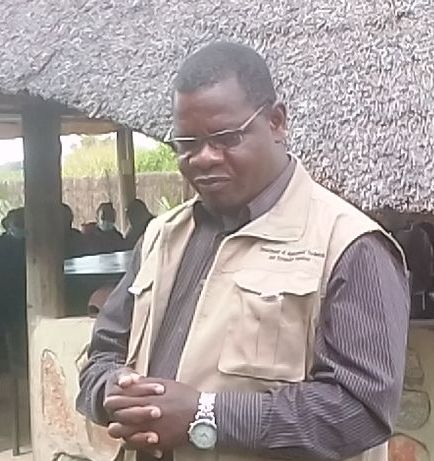|
Getting your Trinity Audio player ready...
|
The United Nations Development Programme (UNDP) handed over feed analysis, laboratory equipment and goats to Esigodini Agricultural College worth over US$80 000 to advance the agricultural training institution’s capacity in goat breeding and nutrition.
The initiative is set to enhance the institution’s educational programmes, extension, and business advisory services.
“The integration of these resources into our educational programmes will enrich the learning experience of our students,” said Professor Obert Jiri, Permanent Secretary, Ministry of Lands, Agriculture, Fisheries, Water and Rural Development. “Through hands-on training and practical exposure to livestock management and agricultural practices, our students will develop the skills and knowledge necessary to excel in the field.”
Amongst a host of objectives, the partnership between UNDP Zimbabwe and the government of Zimbabwe seeks to contribute to national development goals aimed at tackling climate shocks and advancing the country’s national development aspirations.
“This partnership is aimed at advancing the national climate resilience building agenda where Zimbabwe, like most parts of sub-Saharan Africa, is perennially affected by climatic hazards impacting heavily on smallholder rain-fed agricultural production systems, often with severe extending consequences on socio-economic development,” said Dr. Ayodele Odusola, Resident Representative, UNDP Zimbabwe.
54 goats of the Kalahari and Matabele breeds plus an assortment of agricultural equipment which includes, heating ovens, digital analytical balance, labsize grinding mill, automated fat extractor, microscopes, fume cupboards, automated kjeldal unit and several laboratory consumables all worth a total cost of USD 82, 760.00 were handed over to the college of agriculture.
Under UNDP’s, ‘Building Climate Resilience of Vulnerable Agricultural Livelihoods in Southern Zimbabwe’ programme, Esigodini Agricultural College, is one of the five innovation platforms, that are driving innovation in agriculture in Zimbabwe. This project is part of a broader partnership that brings together the Ministry of Lands, Agriculture, Fisheries and Rural Development, UNDP and the Green Climate Fund (GCF).
“This occasion comes at a critical juncture when the country has promulgated several agrarian reform policies and strategies including the National Climate Policy, Agriculture and Food Systems Transformation Strategy, and Livestock Growth Plan, in line with the economic growth trajectory of an upper middle-income society by 2030,” Dr Odusola further said. “Climate Smart Agriculture interventions are particularly key in advancing the climate action and adaptation impact potential for the country, including in responding to the global Sustainable Development Goals, particularly SDG 13 (Climate Action).”
Beyond building the capacity of the agricultural institution’s research and innovation portfolio, UNDP’s partnership with the Ministry of Lands, Agriculture, Fisheries, Water and Rural Development seeks to promote innovation, extension and business advisory services for small scale livestock producers.
“Moreover, it is imperative to recognise the broader implications of these initiatives within the context of the livestock recovery and growth plan. By increasing the college’s herd, the donation does not only contribute to the revitalisation of the agricultural sector but also driving economic growth and resilience within the community,” added Professor Jiri.
In Zimbabwe, the UNDP, through the Zimbabwe Resilience Building Fund (ZRBF), Climate Water and Adaptation Programme (CAWEP) and the GCF-funded Building Climate Resilience of Vulnerable Agricultural Livelihoods in Southern Zimbabwe programmes has over the years supported crop and livestock breed improvements, farmer field schools, climate-smart agriculture, revitalisation, and establishment of new irrigation schemes and in the process benefiting over 840, 000 smallholder farmers.
“As UNDP, we believe that this support will complement Government efforts in strengthening the Ministry’s thrust to achieve the climate adaptation milestones as outlined in the country`s Revised Nationally Determined Contributions,” said Dr. Odusola.
This occasion comes at a time when Zimbabwe has promulgated several progressive agrarian reform policies and strategies including the National Climate Policy, Agriculture and Food Systems Transformation Strategy, and Livestock Growth Plan, in line with the economic growth trajectory of an upper middle-income society by 2030.






